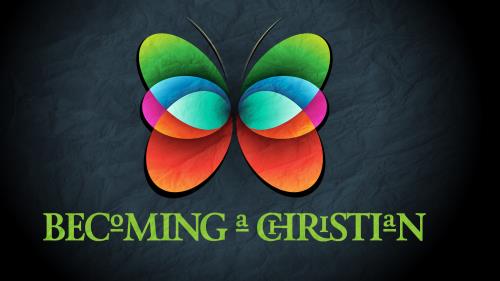-
Sermon On Stoicism Versus Christianity
Contributed by William Meakin on Nov 9, 2022 (message contributor)
Summary: Stoicism is defined as the endurance of pain or hardship without the display of feeling and without complaint.
Marcus Aurelius Antoninus, a former Roman emperor and a Stoic philosopher once remarked: “If you are distressed by anything external, the pain is not due to the thing itself, but to your estimate of it; and this you have the power to revoke at any moment.” Romans 8:1-5 confirms: “There is therefore now no condemnation for those who are in Christ Jesus. For the law of the Spirit of life has set you free in Christ Jesus from the law of sin and death. For God has done what the law, weakened by the flesh, could not do. By sending his own Son in the likeness of sinful flesh and for sin, he condemned sin in the flesh, in order that the righteous requirement of the law might be fulfilled in us, who walk not according to the flesh but according to the Spirit. For those who live according to the flesh set their minds on the things of the flesh, but those who live according to the Spirit set their minds on the things of the Spirit.”
Stoicism is defined as the endurance of pain or hardship without the display of feeling and without complaint. It may include the righteousness of patience, forbearance, resignation, acceptance, fatalism and fortitude among many. It evolved as an ancient Greek school of philosophy founded in Athens by Zeno of Citium. The school taught that virtue, the highest good, is based on knowledge; the wise live in harmony with the divine Reason (also identified with Fate and Providence) that governs nature, and are indifferent to the vicissitudes of fortune and to pleasure and pain.
“Last Holiday” is a 1950 British screenplay written by J. B. Priestley and stars Alec Guinness. The film focuses on stoicism throughout its central characters. In a brief synopsis by Wikipedia, the film’s narrative revolves around George Bird, a salesman for an agricultural implements company. During a routine visit to his physician, he is told that he has acquired Lampington’s disease, a terminal condition and has only a short time to live. He decides to withdraw his savings and spend his final days in an expensive hotel. Once there, he acquires friends and a love interest who eventually learn of his plight.
During a strike by the hotel's staff, Bird comes into contact with Sir Trevor Lampington, the doctor after whom Lampington's disease was named. He insists that Bird cannot possibly have the disease as he shows no relevant symptoms, and contacts the clinic to ask them to check. Just as the original physician discovers his error, Bird enters the surgery and it is confirmed that he indeed, was given a wrong diagnosis. Overjoyed, he is ready to begin life afresh with his new sweetheart, friends and business opportunities. Unfortunately, the film concludes in a bizarre twist of fate, when Bird dies in an unexpected car accident on his way back to the hotel.
When adversity strikes, or a bad prognosis is received concerning a health condition, some people have the fortitude to throw caution to the wind and do something that they have always wanted to do, but have only dreamed of. They refuse to accept the misfortunes of life that may deter them from enjoying the time that they have remaining, resulting in a wasted or fruitless chapter. Positive action becomes the overriding concern.
Stoicism is the innate ability to shrug off the hard knocks of life, accept them as inevitable and continue onwards making the most of it, as best one can. It is considered a virtue unsurpassed by many. 2 Peter 1:5-8 reminds us: “For this very reason, make every effort to supplement your faith with virtue, and virtue with knowledge, and knowledge with self-control, and self-control with steadfastness, and steadfastness with godliness, and godliness with brotherly affection, and brotherly affection with love. For if these qualities are yours and are increasing, they keep you from being ineffective or unfruitful in the knowledge of our Lord Jesus Christ.”
Some regard stoicism as a religion, others as a philosophy. Certain people consider Stoicism and Christianity as diametrically opposed to one another. Stoicism follows Heraclitus and believes in one Logos, whereas Christianity, follows Jesus. Christianity requires followers to believe in one true God and have no other gods before him. Isaiah 44:6 confirms: “Thus says the Lord, the King of Israel and his Redeemer, the Lord of hosts: “I am the first and I am the last; besides me there is no god.”
However, certain similarities have been said to appertain to the two. Although they are not directly related, both seek the best from life in their respective ways and equally postulate virtue. Some advantages of stoicism have been stated as encouraging people to live a life that they want, without due regard for the opinions of others. To become productive and achieve more in life. These principles allow people to dictate their own choices and not be persuaded or deterred by others. People may become more focused on their ambitions and desires. Less anxiety will prevail and more happiness will be experienced.

 Sermon Central
Sermon Central



